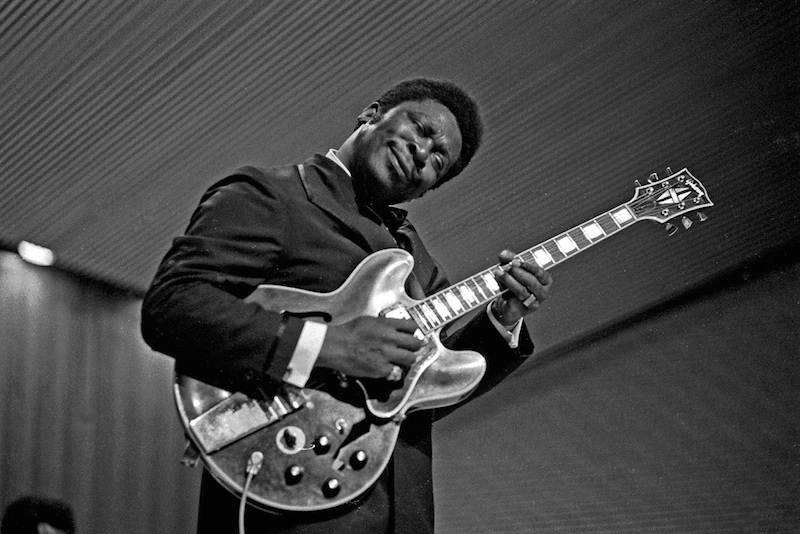
Riley B. King, better known by his stage name B.B. King, listens to his guitar // Photo: Wikimedia
Demystifying the blues
The following originally appeared in dig! magazine. Its author, Steve Kirby, professor and director of jazz studies in the Desautels Faculty of Music, usually writes about jazz but he also grew up loving blues, and wants others to as well.
A couple of things to know about the blues. First of all, it consists of notes that don’t normally exist on the piano. So if you find a lot of your notes lining up with piano notes, you’re probably not really playing the blues. Number two, the rhythms are overtly sexual—because sex was not forbidden in Africa! So if when you’re playing you sound neat and sanitary, chances are you’re not quite getting the idea. You gotta sound a bit dirty, by our Victorian standards. You gotta sound sexual, exotic.
But the main thing is you don’t practice the blues the way you practice all the other scales—going up and down, getting all the notes all under your fingers. You choose one of the points of the blues scale, and you hit it to express a feeling. For example, the minor third, hit on the upcount, sounds hot. The perfect fourth, hit and bent a little, sounds like a sassy ambivalence. The perfect fifth, hit and slurred down, sounds like you’re open to any suggestion. The flat seventh sounds like a celebration of whatever your higher power is. It’s the way you hit those notes that counts.
So when you practice the blues, you think of a story and you hit a note to try to express that emotion. That’s how you practice it. You actually have to connect the notes of the blues to your emotions. That’s why you can listen to ten blues musicians playing the same six or seven notes, and all of them sound different. They each have a unique way of expressing how those notes connect to their emotional story.
The main thing about a blues solo is that you have to have permission to be emotional, you have to have permission to share your emotions. You must travel the gamut, from sad to ebullient to hot to frustrated to angry. You must emote, you must not mute your emotions and refine yourself. The blues is never polite—even when it’s sultry quiet blues, it’s probing for an opening. There’s nothing polite about it, it’s always a little too personal. It’s a challenge to push against the culture of politeness, but if you can accomplish it, you’re well on your way to playing the blues. Once you add the blues to your playing, you’re gonna sound like you’re connected to the source where jazz comes from.
Five blues tracks you should listen to, as recommended by professor Steve Kirby







Thanks for this honor it is greatly appreciated. One small thing though. I am actually a full professor. As of two years ago. No buggy though. All the best S
Thanks Steve. Corrected.
So interesting…this would make for an enjoyable public presentation or “tutored performance” perhaps in conjunction with your Bridge gang!